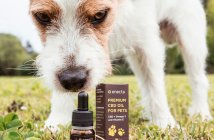Before we begin on a topic that can become quite emotional, let’s assess the problem as rationally as we can while noting some pesticide exposure areas that may not be uppermost in your mind. Obviously, your house and garden bug sprays need to be taken into account while discussing this issue, but we also need to consider pesticide residues on food as well as on our household pets.
How much of a problem is it? Well, according to Nextgen Pest Solutions, laws ensure that households don’t have access to highly toxic pesticides. Rodenticides could be an exception here. Farmers are also bound by law to observe “withholding periods” after pesticide use, allowing the pesticide to break down to “safe” levels before the produce is sold.
However, it’s known that many of the health risks that pesticides present are cumulative. Repeated exposure to small amounts of pesticide could present no immediate symptoms, but have far-reaching implications, and with kids having a lower body mass than adults, they’re more sensitive to exposure than we are.
The conclusion? Less is better. We needn’t be paranoid, but we should be sensible. Now, let’s look at how to protect your family from pesticide exposure. We won’t touch on other toxic household products like cleaning agents, but do keep them in mind too.
Household Bug and Garden Sprays
The first step towards keeping safe with any kind of pesticide spray is to read the label or package insert to determine the necessary safety precautions. Obviously, keeping potentially harmful chemicals out of reach of children is a first step, but do pay attention to other safety precautions.
By and large, these will include precautions to prevent contact between skin and pesticide (wearing gloves), avoiding inhalation, and preventing ingestion of residues by washing your hands thoroughly after use. Using organic pesticides doesn’t mean that there are no safety precautions to follow. Just because it’s natural doesn’t necessarily mean it’s something you want to inhale or eat, for example! Kids should definitely be kept out of the way when you’re using household pesticides.
Pesticide Residues on Food
If you’re particularly worried about pesticide residues in food, choose organically grown produce. But, whether you do so or not, remember to wash all produce before eating. Farmers do usually wash produce before packing, but it’s better to be safe than sorry.
With homegrown produce, you should be aware of the pesticides and fertilizers that were used. Do use properly packaged and labelled products that comply with safety regulations and read the labels to see whether you need to wait for some time before treatment and harvest. If you’re averse to using pesticides, a hard spray with clean water or the use of a little mild soapy water can go a long way!
When You Have Serious Household Pest Problems
It might feel like a good idea to find a sneaky source for the chemicals used by professional pest controllers, but it isn’t. Licensed experts undergo extensive training in the safe use of pest control agents, and the safety precautions they use keep you and your family safe too.
Because rat poisons (rodenticides) include some of the most toxic chemicals available to householders, be extra careful when using them. Children and pets are particularly at risk. Once again, professionals will use the best methods and offer the safest solution to rodent control.
All in all, a little caution can go a long way towards minimizing your, and your family’s, exposure to harmful chemicals. It’s just a matter of keeping calm, being alert, and using chemical agents as they were intended.





At this age they love to explore new things, all things around them are strange and in their eyes they are safe, but they don’t know much when it is a dangerous object that threatens their whole life. their lives, so always keep an eye on children and things like pesticides need to be kept high and out of reach of children.
This is a really very useful article you have written here about how to keep safe you, your children from pesticides. thanks for writing such a great article.